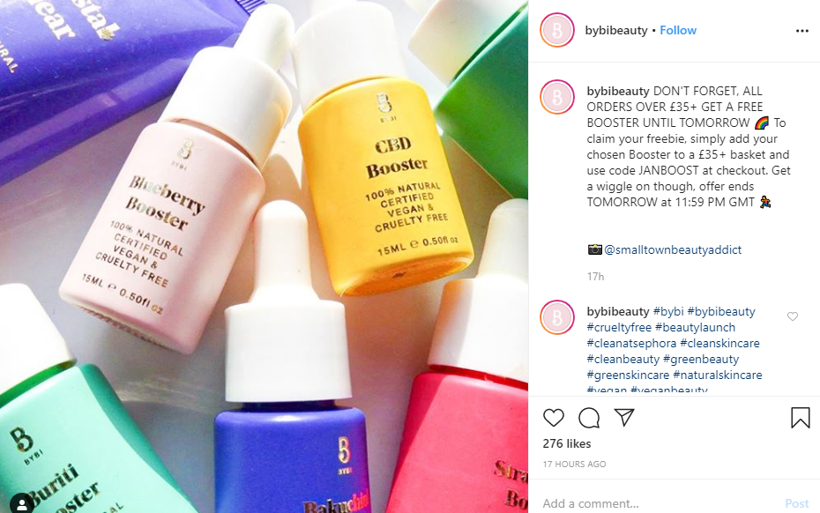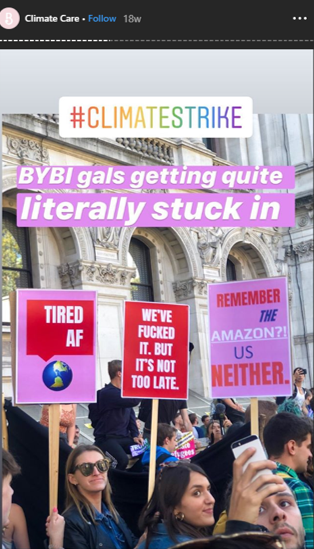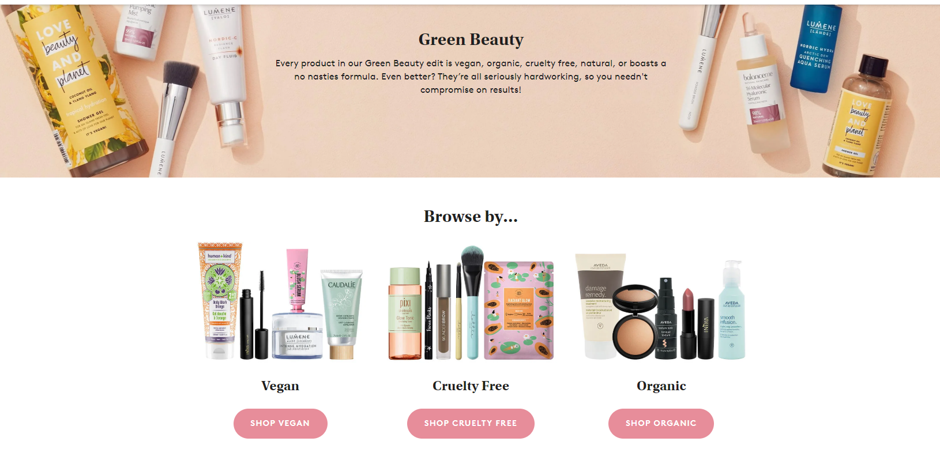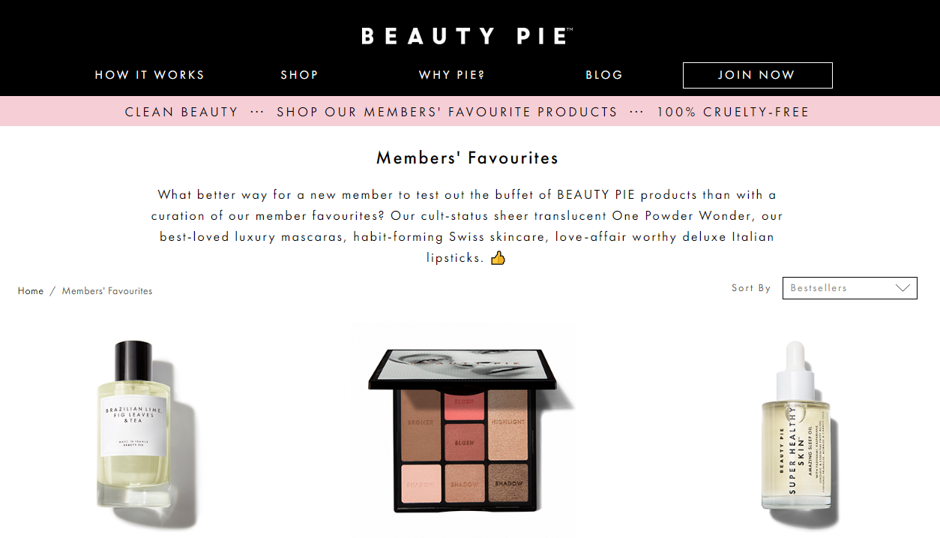
We’re sure it’s come to everyone’s attention that the environment is a pretty big deal right now. This is especially the case with the younger generation, who seem to have more concern for the environment than anyone prior and are certainly more vocal!
At Pull we always want to stay ahead of trends, which is why we develop our own research pieces. Our seminal research piece this year has been The Future of Beauty. In our Future of Beauty research, we looked specifically at how Gen Z discover, learn about, and shop the health and beauty category.
One of the stats which jumped out to me from the survey results was: “58% of Gen Z said they will buy a beauty product because it has natural ingredients”.
This completely makes sense considering how concerned Gen Z are about the natural environment. It’s great to see that not only are they vocal, but they’re also, so to speak, putting their money where their mouth is.
Just as Gen Z (and others) are putting pressure on governments to impose changes to reduce our carbon footprint, so are they applying the same pressure to commercial brands by effectively forcing them to change their ways in-line with consumer purchasing decisions. According to Nielsen, the U.S sustainability market is projected to reach $150 billion in sales by 2021, meaning the environment is big business for brands.
Sad though it is, some companies will only change their strategies if customers force them to make the decision, essentially by impacting the bottom line. Seeing profits dwindle is sometimes the only way that big businesses will make any kind of change. What we’re seeing is effectively a grass roots movement in action, which actually works!
Some beauty giants who have made steps towards becoming more environmentally friendly (although as Guardian columnist Sally Hughes points out these companies are not perfect) are Unilever, with the launch of their new range ‘Beauty & Planet’, which has 100% PCR recycled packaging and a range of natural scents.
Edgewell Personal Care is another mass corporation who have made environmental advances on certain brands. Bulldog skincare is one example, with tubes derived from ethically sourced sugarcane and a manufacturing process which limits the amount of water heated and energy used.
Obviously, there are also some large beauty brands out there which have always had an environmental focus, and hopefully we should see these brands grow as their ethos attracts more younger customers. This includes The Body Shop, who launched their community trade programme (now running for 30 years) and Lush, who have always had a focus on packaging reduction and natural ingredients.
As well as forcing big brands to change, Gen Z and Millennials are setting up their own companies which embody their environmental values.
Such companies include BYBI, a 100% natural, vegan and cruelty free skincare company who place emphasis on reducing and offsetting their carbon emissions.

BYBI even have an Instagram highlights story dedicated to climate change action.

Often going hand-in-hand with environmental concerns are the need to be vegan and organic, the connections between the above is obvious. It’s interesting to note the market is not purely conscious of carbon emissions, but everything that goes with becoming more friendly towards the environment, animals and ultimately yourself, as there is huge concern about the amount of chemicals we’re unwittingly putting on our skin.
The movement has garnered a name, ‘clean beauty’ which touches everything from brands like Glossier, to Gwyneth Paltrow’s Goop lifestyle website. Clean beauty is especially a concern for American consumers, as the USA doesn’t have the same restrictions in place as the EU. As an example, the US has banned 30 cosmetic ingredients, whereas the EU has banned over 1,300.
The EU regulation excludes products containing synthetic colours, parabens and formaldehyde, to name just a few. Unbelievably, formaldehyde is not banned by the FDA in the US and can be present in any amount within American cosmetics. Formaldehyde has been proven to cause irritation of the nose, eyes and throat and has been linked to asthma 😨. Now that’s scary stuff!
Given that using non-natural products could have a serious impact on health, it’s no wonder that consumers are turning towards natural beauty brands they feel they can trust.
In on trend are beauty subscription boxes like Birchbox, who offer a specific section on their site dedicated to green beauty, boasting products which are organic and cruelty free. And Beauty Pie a luxury beauty product buyers’ club who offer significant discounts after becoming a member.


All in all, there’s a plethora of options out there for beauty products that not only have natural ingredients, but are also good for the planet, not tested on animals and organic. However, it does take a little research and dedication to find them as they’re not all likely to be in your local supermarket.
As long as consumers keep putting the pressure on brands to be better, brands will become better, purchasing power is probably the best tool that can be used when it comes to changing big brands. Even, if this is seen as ‘woke washing’ by some, do we actually care as long as positive change is made? I certainly don’t.
Posted 3 February 2020 by